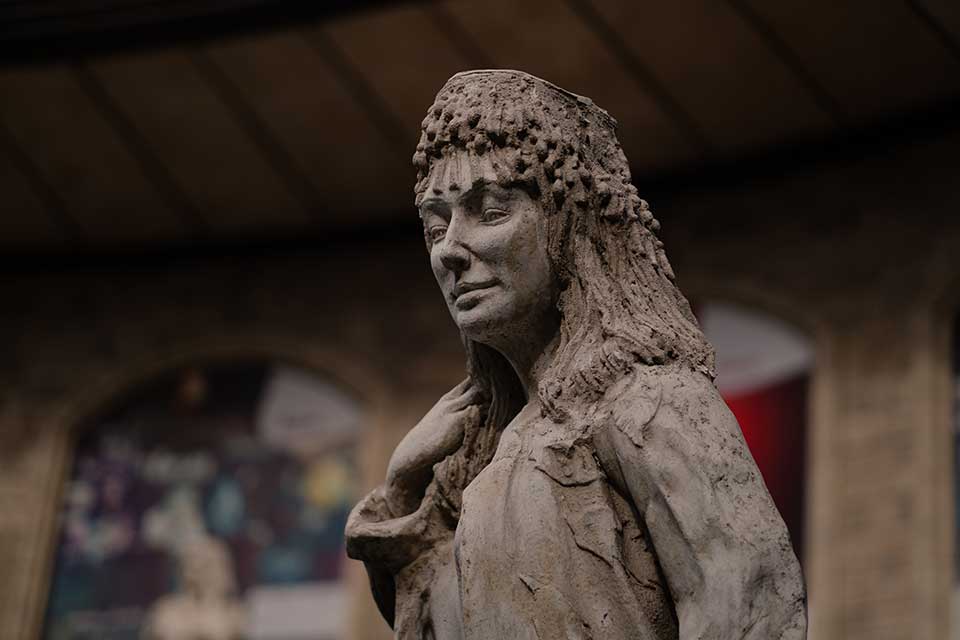There is a global phenomenon in the literature resulting from the occupation of many of the countries and peoples of Asia and Africa by European colonialists: the phenomenon of writing in the language of the colonizer or occupier.
When the colonial powers imposed their own languages and cultures on occupied countries and prevented people from using their own language, it spawned a generation of writers who grew up without command, at least in writing, of any language other than the language of the colonial power, which became their sole, effective weapon in defending themselves and their case. Some of these writers became great creators in writing stories and novels in that they reached high literary levels and obtained recognition for their literature in cultural circles worldwide.
Many writers from the Indian subcontinent wrote, and still write, in English, and a great number of African authors in English, French, and Portuguese. The most prominent example in the Arab world is from the Maghreb and some from Lebanon who produced, and still produce, great literature in French.
This phenomenon was and still is the subject of extensive academic studies and theoretical debates by researchers and historians of literature. The most important question in this regard is: in what category does the literature that is produced by colonized people writing in colonial languages belong?
Let's ask the question in a simpler form: is the literature that has been, or is, written by Mouloud Fir’awn, Katib Yassin, Assia Djebar, Abdullatif Laabi, and Salah Steitieh, a French or an Arabic literature?

This question is also being asked in Kurdistan, although not with the same force in which it is asked in the Maghreb or on the Indian subcontinent. Some people do not like considering Kurdistan a country that was colonized by Iraq, Syria, Turkey, and Iran because the simplified definition or conception of a colonizer is one with blue eyes and white skin who comes from overseas – and this does not apply to the Arab, Turkish, and Persian rulers.
However, the relevant inquiry here is into some Kurdish creative writers who produce their work in languages other than their native Kurdish. To what literature tradition do they belong? Should they be studied as a part of Kurdish literature?
There are, however, many big names in Arabic, Persian, and Turkish literature with Kurdish origins who have produced work that is Signs Franchise for those languages. Brothers Mahmoud and Mohammed Taimour are of Kurdish origins and their pioneering role in Egyptian and Arab storytelling is well known in the history of Arabic literature. Abdul-Majeed Lutfi and Muhyiddin Zangana in Iraq were also writers who have represented Arabic literature with texts that are characterized as pioneering and innovative. The most outstanding writer in contemporary Arab literature is, no doubt, the Syrian Kurdish novelist Salim Barakat, whose books are translated into dozens of languages.
One of the most renowned founders of Iranian fiction is ‘Alî Muhammad Afghani, a Kurd born in Kirmashan (Kirmanshah) in Iranian Kurdistan. The same is true with ‘Ali Akbar Darvishian and Mansour Yaghuti. And when it comes to Turkish literature, no one disagrees that the Kurdish Yaşar Kemal was the greatest international Turkish writer in the past forty years and was a candidate to win a Nobel Prize in literature for more than two decades.
I'm not here to arbitrate on such a spiky subject, although I have my clear opinion. I would rather like to draw readers’ attention to the fact that in this study I did not want to embed Kurdish writers into any one particular literary tradition. As such, it remains an important issue that deserves serious consideration and thoughtful discussion.
Farhad Shakely is a Kurdish poet and academic, born in Garmian-Kirkuk province, Southern Kurdistan. he has published over 50 books, including eight poetry books; short stories; studies on the history of Kurdish literature; philosophy and Sufism. He lives in Sweden.

